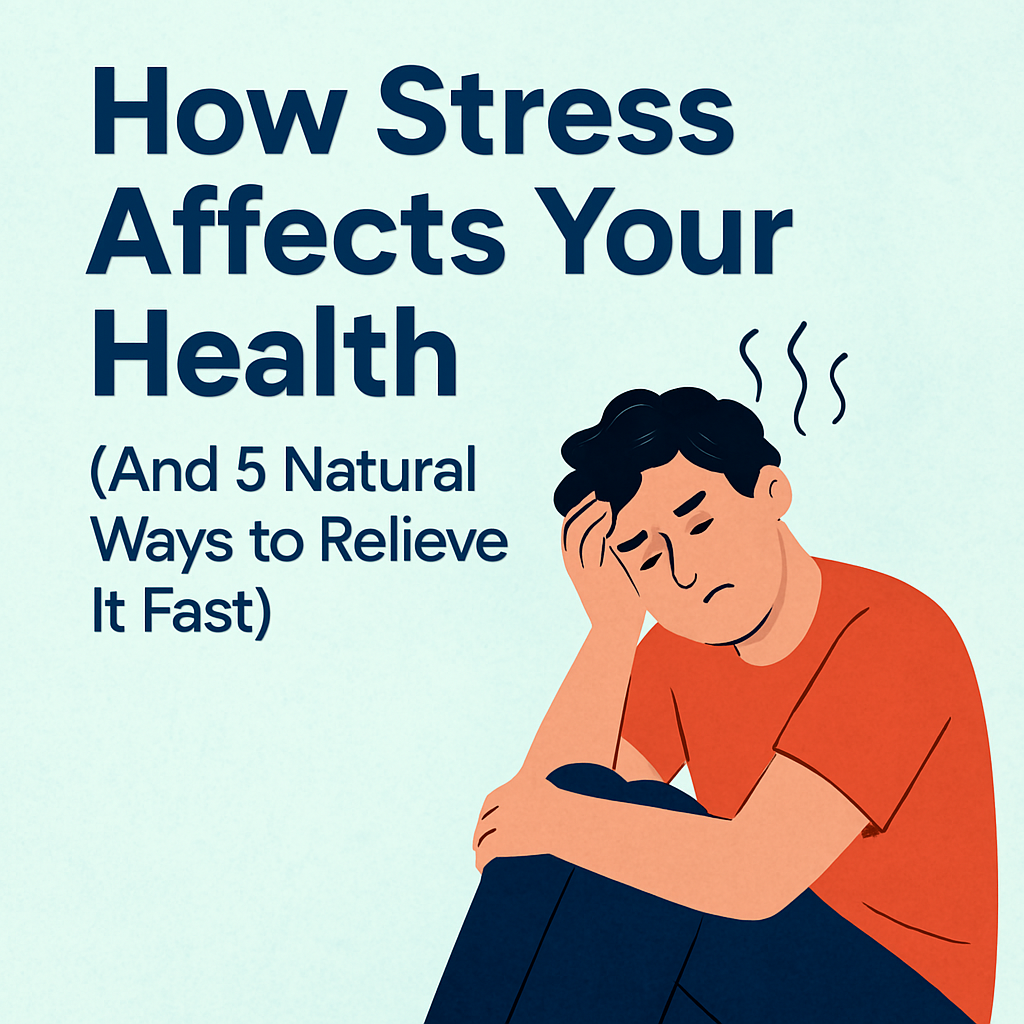In today’s fast-paced world, stress is everywhere — deadlines, bills, social media, constant notifications. And while some stress is normal, living in a constant state of tension can quietly take a toll on your physical and mental health.
The good news? You don’t need expensive treatments or drastic lifestyle changes. In this post, you’ll learn how chronic stress affects your body — and discover 5 natural, science-backed techniques to help you feel calmer, clearer, and more in control.
What Chronic Stress Does to Your Body
Stress is a natural response to threats. But when your body stays in “fight or flight” mode too long, it starts to wear down your systems — even if you don’t notice it right away.
1. Weakens Your Immune System
Chronic stress lowers your body’s ability to fight off infections, leaving you more vulnerable to frequent colds, fatigue, and even autoimmune flare-ups.
2. Raises Blood Pressure and Heart Risk
Long-term stress increases the release of cortisol and adrenaline, which puts pressure on your heart. Over time, this raises your risk of hypertension, heart attacks, and strokes.
3. Wrecks Your Sleep and Digestion
Stress and good sleep don’t mix. It can lead to insomnia, restlessness, or light sleep. It can also disrupt digestion — triggering bloating, heartburn, or upset stomach.
4. Drains Your Mental Health
Prolonged stress is closely linked to anxiety, irritability, burnout, and depression. It messes with your mood, memory, and ability to focus.
5 Natural Ways to Relieve Stress (Backed by Science)
You don’t need to escape to the mountains to feel better. Here are 5 simple, effective strategies you can use starting today:
✅ 1. Deep Breathing Techniques
Breathing exercises activate your parasympathetic nervous system — the part of your body that calms you down.
Try this:
👉 4-7-8 technique – Inhale for 4 seconds, hold for 7, exhale slowly for 8. Repeat for a few cycles.
Use it whenever you feel overwhelmed — even in traffic or at work.
✅ 2. Move Your Body
Exercise is one of the most effective stress-relievers out there. Just 20–30 minutes a day of walking, yoga, or dancing can release endorphins and instantly shift your mood.
Bonus: Regular movement improves sleep and reduces tension stored in your muscles.
✅ 3. Progressive Muscle Relaxation
This simple technique involves tensing and then relaxing muscle groups throughout your body — from your toes to your forehead.
It’s especially helpful before bed or after a stressful meeting.
✅ 4. Sip Calming Herbal Teas
Some herbal teas have natural compounds that help reduce anxiety and promote relaxation. Try:
- Chamomile
- Lemon balm
- Valerian root
- Lavender
Sipping a warm cup in the evening can be a peaceful ritual that signals your body it’s time to unwind.
✅ 5. Unplug and Go Outside
Too much screen time can overstimulate your nervous system. Step away from the phone and reconnect with nature — even just 15 minutes a day.
- Go for a walk in a nearby park
- Watch the sunset
- Sit under a tree or by a lake
Nature is free therapy.
When to Get Help
If you’re constantly feeling overwhelmed, burnt out, or unable to cope — it’s okay to ask for help.
Therapists, coaches, and mental health professionals can offer tools and support to help you manage stress in healthier ways.
Final Thoughts
Stress might be part of life — but it doesn’t have to control it.
With a few daily habits and small shifts, you can take back your peace, boost your health, and feel more grounded.
💬 Your Turn: What Works for You?
Which technique are you most excited to try?
Comment below or send this post to a friend who could use a break.




